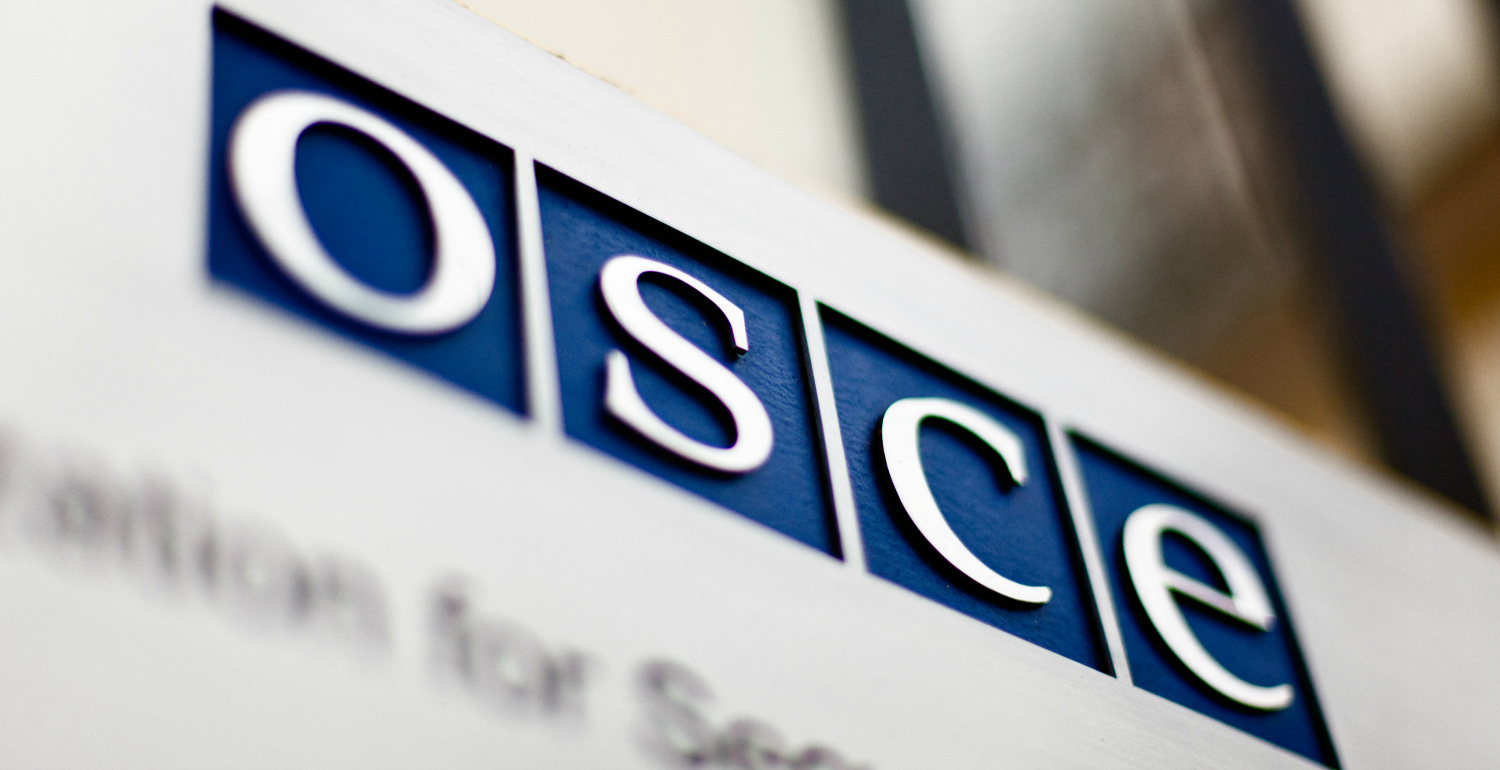By Douglas Davidson,
Senior State Department Advisor
“The OSCE’s founding father was born in 1724.” So stated Miklos Haraszti as he began a speech to a group of diplomats assembled in the Ratsaal of Vienna’s Hofburg conference center in late October. His opening sentence startled many of the dozy denizens of this room into something approaching wakefulness, for this was scarcely the usual thing said about an organization whose formal foundations were laid down barely thirty years ago in the Helsinki Final Act. Clearly, this was not going to be your typical diplomatic intervention.
Mr. Haraszti, who is nearing the end of his distinguished tenure as the OSCE’s Representative on Freedom of the Media, was referring, to Immanuel Kant. His talk, however, was not about German philosophy. Instead he was tackling the topic of the Organization for Security and Cooperation in Europe (OSCE) and its “Corfu Process.” How he intended to make the link between an 18th century man who never ventured more than a hundred kilometers from his home in Konigsberg and the world’s largest regional security organization was not immediately evident.
Believe it or not, such a link exists. To find it, however, probably requires a brief explanation of the Corfu Process itself.
Last June, meeting informally on the island of Corfu under the aegis of the Greek Chairmanship of the OSCE, the organization’s foreign ministers “agreed on the need for an open, sustained, wide-ranging and inclusive dialogue on security and concurred that the OSCE is a natural forum to anchor this dialogue, because it is the only regional Organization bringing together all States from Vancouver to Vladivostok on an equal basis.” This, in the manner of the OSCE, then led inevitably, and perhaps inexorably, to a “process,” which by the autumn of this year had taken the form of a weekly series of meetings devoted to discussing the different aspects of European security. These discussions then led to a declaration and a decision during the organization’s annual ministerial meeting in Athens on December 1 and 2 that among other things confirmed the intention of the organization’s participating States to continue these discussions and this process into 2010 and perhaps beyond.
The Corfu Process, as this perhaps suggests, is nothing if not ambitious. In introducing the concept earlier this year, the then-Greek Foreign Minister Dora Bakoyannis said, “The purpose of the meeting is to consider the future of European security. Through what we call the Corfu process, we will begin a dialogue that will enable us to build a more secure, more stable and stronger Europe.”
Such a dialogue seems to enjoy support from many quarters, including the United States, if only as a means to revitalize the OSCE and its once-central role in European security. The U.S. Assistant Secretary of State for European Affairs, Philip H. Gordon, told the Helsinki Commission in a recent hearing that, “The Corfu process inaugurated by the Greek OSCE chair in office to take a fresh look at the OSCE itself and European security more generally is at the center of the revitalization effort. We hope OSCE participating states will not only renew their commitment to the OSCE’s core values at Athens but also begin to chart its future in engaging new and old security challenges.”
It is in fact precisely the OSCE’s core values and especially its comprehensive concept of European security that distinguish it from the myriad of other acronymical organizations that span the European continent. In practical terms, this concept means that the OSCE seeks to mesh the political-military, the economic and environmental, and the human aspects of security into a seamless whole. In recent years, however, some widening tears have begun to appear in that fragile fabric.
Mr. Haraszti was speaking on a day devoted to “Common Challenges in the Human Dimension.” (The OSCE, whose parlance sometimes resembles that of science fiction, uses the term “dimension” to denote what at Helsinki were called, more humbly, “baskets.”) More specifically, the topics of the day were: “human rights and fundamental freedoms, democratic institutions and the rule of law, and tolerance and non-discrimination.”
These issues have not been subject to universal agreement in recent years. As Mr. Haraszti himself noted, a certain “disillusionment” with the OSCE’s human rights commitments has manifested itself in some of the organization’s participating States as time has passed. But, Mr. Haraszti argued, there is “no security without human rights.”
He framed his argument and his intervention around Kant’s essay “Perpetual Peace.” In this essay Kant puts forward three “Definitive Articles of Perpetual Peace,” the second of which states: “The law of nations shall be founded on a federation of free states.” Kant then amplifies: “Every state, for the sake of its own security, may—and ought to—demand that its neighbor should submit itself to conditions similar to those of the civil society where the right of every individual is guaranteed.”
The OSCE is thus the embodiment of Kant’s “Perpetual Peace.” It stands against the notion that human rights are purely internal matters. Instead, as Mr. Haraszti noted, with the OSCE basic human rights are both internalized and internationalized.
Of course, as he also noted, a perpetual peace is not a perfect peace. We do not, after all, live in a friction-free world. But security grounded in Kant’s vision of a federation of free constitutional republics in which each individual enjoys the same rights as any other certainly seems a sound basis for a European peace that, if not perpetual, is at least likely to endure for a long time to come.





